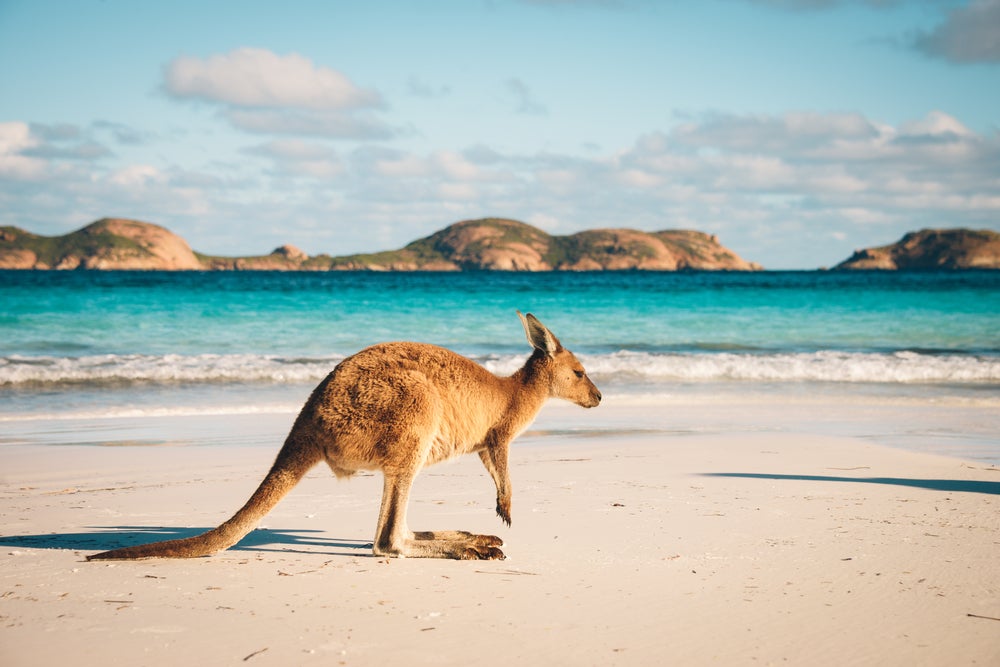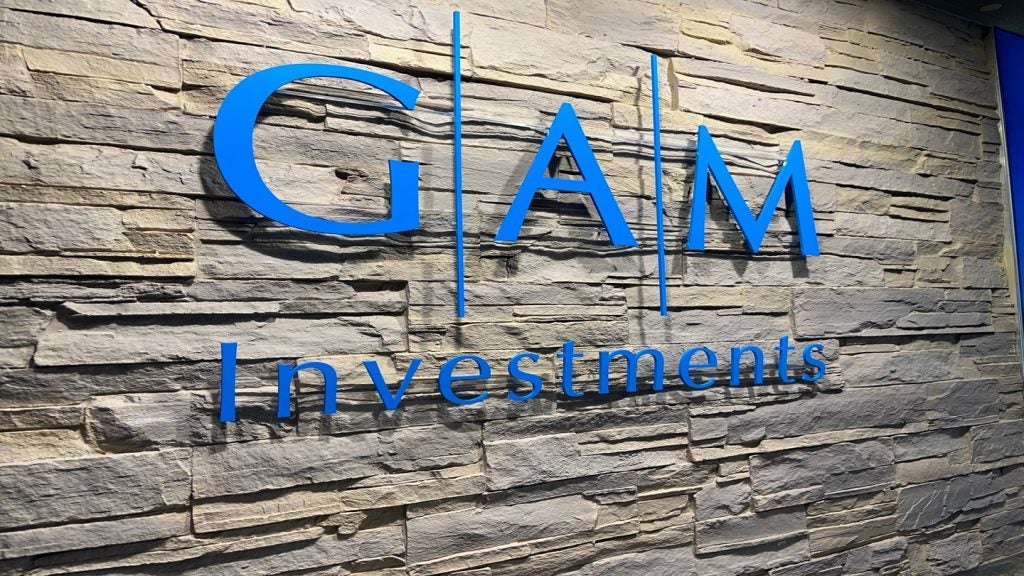
Growth Potential in Australia’s Wealth Management Sector
As 2020 finally draws to a close and we move forward with eager optimism 2021, Mishelle Thurai looks at the Australian wealth management sector. With trade tensions at an all time high and a pandemic-stricken economy to recover from, is there still space for growth?
Recently, Australia was classed as Beijing’s whipping boy. Trade tensions have reached the boiling point and it seems China is not backing down. Australian wine, timber and copper are seeing high tariffs and import restrictions. This cat and mouse game all started back in March when Australia’s Defence Minister signalled for the World Health Organisation to investigate the origins of Coronavirus. Since then the pandemic has taken a toll on all global economics but how has the wealth management sector fared? Is there scope for change and is the sector set to grow in the next year?
A New Era of Client Interaction Post Covid
Speaking to PBI, Michael Marr, Head of Private Banking in Australia for Credit Suisse, he comments on the pandemic’s effect on the sector and how one of the leading private banks has adapted to a new way of communicating with its High Net Worth clients.
He says: “We’ve got an office in both Sydney and Melbourne and the client experience and private banking experience in both the two locations is vastly different.”
Melbourne has finally opened up and eased down on its strict lockdown in the past couple of months but, prior to this, citizens were only allowed outside of their house for an hour while told to remain within the 5km radius of their house. This could have caused potential complications between client and advisers. The wealth management sector is notoriously known for its personal relationships with clients and advisors and sustaining relationships with HNWs is a fundamental part of the role the wealth manager takes on.
Marr continues: “Client interaction has been made a lot more difficult but at the same time a lot easier as we are all at home and a zoom call is much easier to have. If a client or a prospect is looking to engage with you the timeframe for engagement is massively reduced because they are sitting at home and they are not typically on holiday, or they are not typically doing something.”
Post-Covid, booking a time in with a HNW client would normally take four to five weeks, according to Marr, but in the current situation it takes up to a couple of days, so instead engagements between clients and their advisors have rapidly enhanced.
Interestingly, for Credit Suisse Australia, lockdowns and restrictions were used to its advantage. This solution could be carried forward in future years when society goes back to a degree of normalcy. The private bank also ensured that its clients could dial in to a weekly investment call.
Marr comments: “We did the call systematically every week with a guest speaker around a specific topic and a specific theme of interest, and then two months ago we reduced that from weekly to every two weeks. Now we are running it monthly but the message to the relationship managers and advisers is – this is the time with all the uncertainty that’s going on.
“Whether it’s COVID-19, whether it’s vaccine news, or the US election, or even China, you have an associated volatility in the markets. You’ve got the time because you’re sitting at home and you have to be on the front foot the whole time with your clients around.
“The business has responded incredibly well to that, I mean it’s pretty basic that that’s what you’ve got to do you know in times of uncertainty and high volatility, clients want to hear from their advisers and that’s what you have to do.”
Client Demands Continue to Evolve
With the ongoing hit on the Australian economy, has there been an increased amount of uncertainty visible in a client’s portfolio?
Marr comments on client demands remaining the same even during uncertain times and poor economic health: “The client demands are exactly the same, wanting a multi-asset class portfolio solution on the best hedge funds, or the best research around private equity, and wanting thematic ideas included in the portfolio as to where the adviser thinks certain sectors or certain markets are going and what’s happened as a result of Covid is now the client wants an enhanced cash solution
“Suddenly cash which was always a relatively passive asset class which was sat in a client’s portfolio is now being much more actively managed and the banks that are coming up with decent cash solutions are the ones that are winning a lot more in the business.”
Does a Shift Towards Socially Responsible Investing Offer Room for Growth?
According to GlobalData’s Australia Wealth Management: HNW Investors 2019 report, HNW investors spread their investments equally across four main asset classes: equities, bonds, commodities and property, and represents an evident change from previous years when equities ruled HNW portfolios.
However, as well as the more traditional assets included in portfolio’s there is increasing demand for Socially Responsible Investing (SRI). Maar notes: “If you’re a private bank and you’re not awake to that then your business will wither.”
He emphasises an opportunity in the SRI space and making investments based on ethical consciousness. GlobalData’s report also states that demand is forecast to grow from a lower base, “with only 40.8% of wealth managers currently offering SRI services – compared to 57.1% for philanthropy. Yet our surveying of the market suggests that HNW client demand for SRI will overtake that for philanthropy in 2020 – a trend supported by the greater interest in SRI among younger investors and the growing role they are playing in the overall wealth market”.
Marrs says: “There’s a mass movement in the market around the decarbonisation of the energy grid, the technology millionaires that are emerging from IT, all in their 30s, all highly at the core wanting all the impact styles and investment themes in their portfolios and we have responded to it.”
It seems in the HNW sector within Australia there has been a shift away from concepts around charity to investor demand in responding to global crises such as climate change and gender inequality. Currently investors want to make that change but also want to gain a return in their portfolio from it, and wealth managers are encouraged to offer services and products to meet demand to invest in these specific areas. It appears now more than ever that SRI will continue to be at the forefront of decision making for wealth managers and their clients, along with Environmental, Social and Governance investing.
Marr continues discussing how Credit Suisse meets client demand for SRI and ESG investing: “We run multi asset class portfolios, discretionary portfolios and we’ve got a specific ESG one that we run, that complies with all the global standards required. We’ve offered clients the ability to switch from one balance portfolio into the ESG balance portfolio and we bear the cost of that transition as we think it’s really important to encourage clients to do that.”
Client’s That Multibank are Self-Directed
According to GlobaData’s report, the average HNW individual in Australia uses 6.1 wealth managers. The report also states: “Australia’s investors place a lower proportion (18.5%) of their funds with their main wealth manager than the regional average (38.5%%), making them some of the most promiscuous in the world.”
Marr also discusses clients wanting to multi-bank and proposes that it completely depends on their needs and their profile.
He explains: “I think the self-directed clients tend to multi-bank because it’s all about access to IPOs, research and ideas. The ones that want to give a lot of the responsibilities to us tend to bank with one organisation because you have the pension fund, you have that trust, you have that personal account, you probably have their mortgage and you’re managing the interrelationship between the various entities. If they have too many banks, then it becomes too complicated because each one is producing a tax reform at the end of the year.”
The question still arises if private wealth managers in Australia should remain conscious about the distribution of wealth, even if it seems there is one specific type of client that tends to multibank? It doesn’t seem like there is an evident threat to traditional wealth managers if a client prefers distributing their portfolios among a large number of providers, Marr makes this apparent. Credit Suisse also has a solution for the clients who multibank, which could potentially lead not only to long-term steady growth for the client but also client loyalty and wealth manager complacency, even during global uncertainty.
“The clients that aren’t actively involved tend to bank with one organisation, the ones who are very involved and self-directed tend to multibank. We deal with those clients with what we call a digital private bank, which is a tool where you can trade any stock in the world on your iPhone, up to a million dollars,” Marr states.
“So they have their account and they won’t be able to trade unless they’ve got their credit facility in their account, or they’ve got the cash to settle the trade, but they can basically put the trade on themselves, and we have clients doing that, we had a client the other day who put a million on Google.”
This allows for self-directed HNW clients to still maintain control of their portfolio and trades while sustaining a relationship with their wealth manager.
A Mature Demographic Segment is Set to Remain
The wealth management sector across the Asia Pacific region is seeing more millennial millionaires. Compared to this, the Australian market is more mature and will probably continue to stay this way for the foreseeable future.
Marr continues: “The rest of the market, whether you’re in property or whether you’re in resources or business, that evolution continues and it’s not really age based, it’s the millionaires from the mining sector that are all in their 40s, 50s and 60s. That has remained the same.”
“Property as an asset class in Australia has gone up every single year since this country was founded. Property is an asset class that continues to go up and the individuals who make money on property investments are similar and in their late 40s, 50s and 60s. We haven’t really seen a big change you know. I think about the client’s we have signed up this year and it’s a real cross section. It’s the retirees and the tech millionaires, and that has been consistent for the last two or three years,” he says.
According to GlobalData’s research, Marrs statement is evident and reflected in the demographic makeup of the local HNW community. The report suggests that “slightly under half of HNW investors are above the age of 60, meaning they are approaching or have already reached retirement age”.
This means that wealth management offerings are still geared to this specific demographic but are also preparing for the inheritance models to pass wealth on throughout the family.
Moving Towards a Conflict Free Model
Marr also openly discusses the way Credit Suisse adopts the use of a conflict free model in its relationship management structure.
He concludes: “The only people that pay us are our clients and that’s the kind of conflict-free model we have talked about in the last 12 years in Australia. Now, you know if you’re an advisor and you’ve got an associated investment bank that’s doing an IPO or a listing and you’re then talking to your clients about participating in that listing, there’s an inherent conflict there because your being paid by the investment bank to talk to a client on investing in that opportunity.
“So, we have removed all of that, we don’t do any distribution for our investment bank for any IPOs or listings that they do. We would literally sit there with our clients and ask what’s your risk profile? Your risk profile drives this asset allocation, now let’s talk to you about how we are going to populate the asset classes.”
Evidently, there are key sectors and markets within the Australian wealth management industry which shows there is still room for growth despite the adversities a global pandemic has brought on. Client relationships have instead thrived due to more time, technology and has led to sustained loyalty with their wealth manager.
Moving into 2021, SRI and ESG investing will most likely take the forefront in client portfolios compared to the more traditional assets which once used to dominate a HNW investment portfolio.







